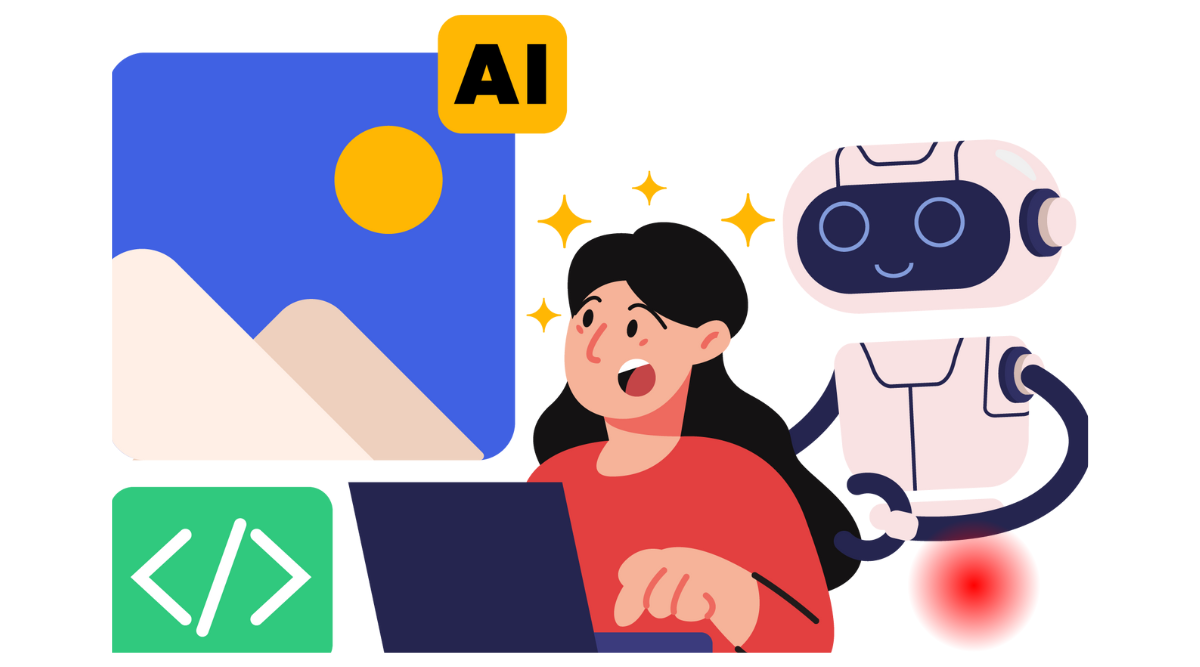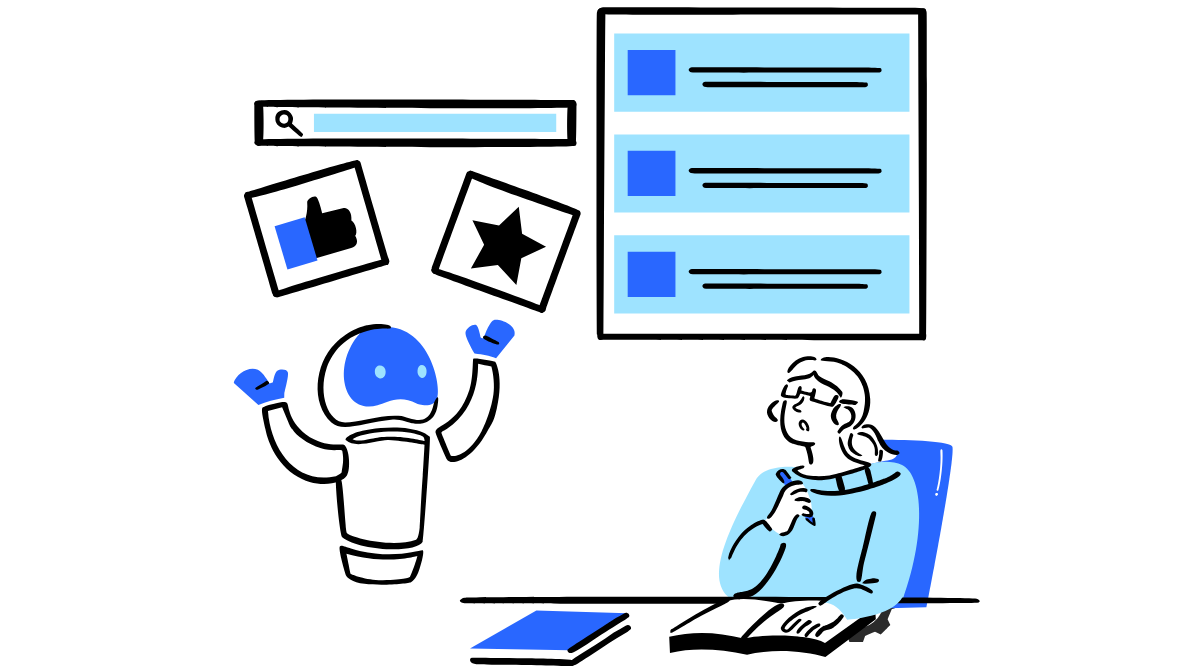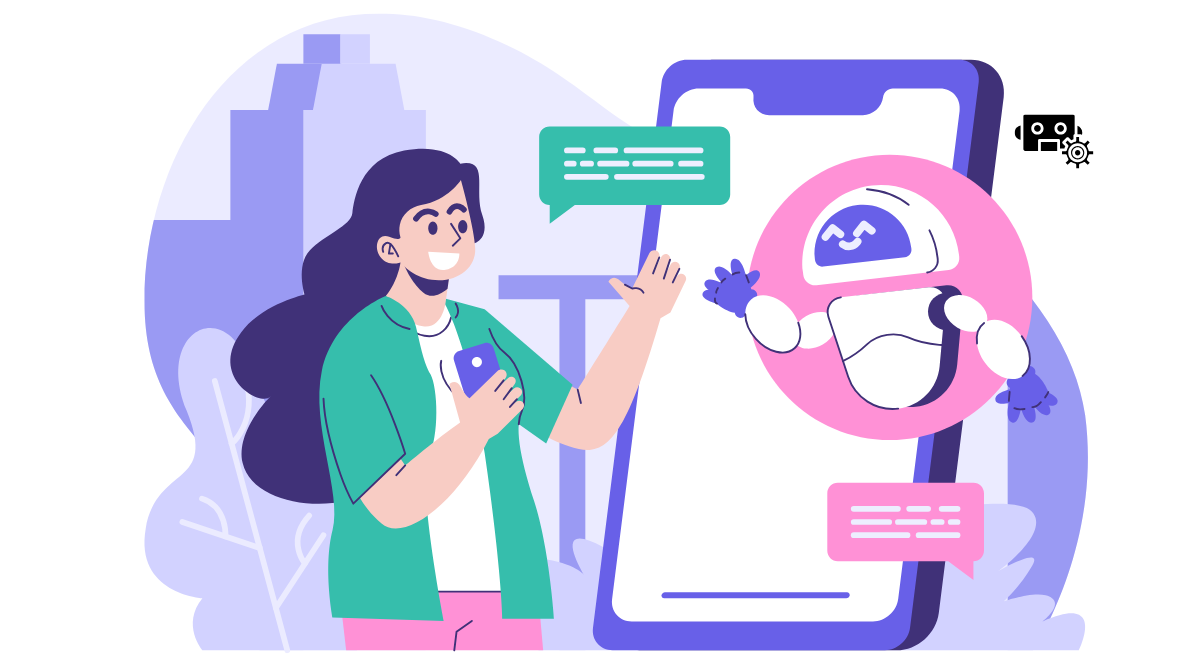Understanding the Difference Between Sales Agents and SDRs in the AI Era
Explore how AI transforms the roles of sales agents and SDRs. Discover their responsibilities and the evolving sales landscape.

In the ever-evolving landscape of sales, understanding the roles of Sales Agents and Sales Development Representatives (SDRs) is crucial, especially in the AI-driven era. Businesses are constantly seeking ways to enhance their sales processes, and the integration of artificial intelligence (AI) is reshaping traditional methods. This article delves into how AI is transforming these roles, the key differences between them, and why it matters today.
The Evolving Role of Sales Agents and SDRs
Historical Context: How Sales Roles Have Changed
Sales roles have seen a significant transformation over the decades. Traditionally, sales agents were viewed as the quintessential figures responsible for driving revenue. Their focus was primarily closing deals and fostering long-term customer relationships. However, as business landscapes became more competitive and consumer behaviors evolved, companies needed specialized roles to handle different stages of the sales process, leading to the emergence of the SDR role.
SDRs primarily focus on the top of the sales funnel activities, such as lead generation and qualification. This shift allowed sales agents to concentrate on more complex tasks like negotiating and closing deals. The division of labor aimed to streamline processes and increase efficiency. Today’s sales ecosystem benefits from this role specialization, which has further evolved with advancements in technology, particularly AI.
The Impact of AI on Traditional Sales Roles
With AI's advancement, sales roles are undergoing another transformation. AI tools are automating repetitive tasks, analyzing vast amounts of data to predict sales trends, and providing insights that were previously inaccessible. For instance, AI can personalize email outreach, analyze leads' engagement levels, and recommend next steps, reducing the manual efforts traditionally required by both sales agents and SDRs.
AI's impact isn't limited to efficiency improvements. It enhances decision-making by providing data-backed insights, allowing sales teams to focus on high-impact activities. For SDRs, AI-driven platforms can automatically qualify and score leads based on pre-set criteria, ensuring that sales agents engage only with the most promising prospects.
Why Understanding These Roles Matters Today
In today's competitive market, understanding the nuances between sales agents and SDRs can significantly influence a company's sales strategy. Companies that effectively leverage the strengths of each role, while integrating AI into their processes, can improve their sales success rates. This understanding helps in allocating resources efficiently, training teams effectively, and ultimately driving higher revenue.
Grasping the distinction between these roles also aids in recruitment and talent management. As AI continuously reshapes sales functions, finding the right balance between human expertise and AI capabilities becomes essential for businesses striving to maintain a competitive edge.
Key Differences Between Sales Agents and SDRs
Defining the Sales Agent Role and Its Duties
Sales agents are the linchpins of the closing phase in the sales process. Their primary responsibilities include engaging with clients, understanding their needs, and guiding them through the buying journey. A sales agent aims to build strong relationships with clients, ensuring repeat business and client satisfaction.
- Negotiating Contracts: Bringing deals to a successful close.
- Maintaining Client Relationships: Ensuring customer satisfaction and handling post-sale inquiries.
- Sales Presentations: Showcasing the value proposition of products or services to potential clients.
In essence, the role demands excellent communication skills, deep product knowledge, and the ability to build and maintain trust with clients.
The Specific Responsibilities of an SDR
SDRs are primarily tasked with managing the initial stages of the sales process. Their focus is on prospecting and qualifying leads to ensure that only high-potential prospects reach the sales agents.
- Lead Generation: Identifying potential clients through research and outreach.
- Lead Qualification: Assessing the potential value of leads to determine if they meet the company's criteria for sales engagement.
- Initial Outreach: Establishing contact with potential clients, often through emails or calls, to gauge interest.
SDRs are crucial for filling the sales pipeline with high-quality leads, ensuring that sales agents can focus their efforts on closing deals.
Comparative Analysis: Tasks and Objectives
When comparing sales agents and SDRs, their tasks and objectives align towards a common goal but focus on different stages of the sales funnel.
| Task/Objective | Sales Agents | SDRs |
|---|---|---|
| Lead Interaction | Closing deals and client retention | Prospecting and qualifying leads |
| Stage in Sales Funnel | End-stage: Closing and negotiations | Early-stage: Lead generation |
| Primary Goal | Enhance customer satisfaction | Fill the sales pipeline with leads |
| Skills Required | Negotiation, relationship building | Research, initial communication |
Understanding these differences helps organizations structure their sales teams effectively, ensuring each role contributes maximally to the sales lifecycle.
How AI is Shaping the Role of SDRs
AI Tools That SDRs Are Using Today
Artificial Intelligence has rapidly found its place in SDR workflows, offering tools that automate and optimize various tasks. Today, SDRs utilize AI-powered platforms for lead generation, qualification, and engagement, which drastically reduces the time spent on manual processes.
Popular AI tools for SDRs often include capabilities such as:
- Automated Prospecting: Using machine learning to identify potential leads.
- Lead Scoring: Prioritizing leads based on engagement history and likelihood to convert.
- Predictive Analytics: Analyzing past data to forecast future sales trends.
These tools not only increase the productivity of SDRs but also elevate the quality of leads entering the sales funnel, contributing to overall sales effectiveness.
Enhancing Lead Qualification and Nurturing
AI has revolutionized lead qualification by introducing scoring systems that automatically assess a lead’s potential based on defined criteria. These systems draw on various data points, including lead behavior, demographics, and interaction history, to create a comprehensive profile that indicates sales readiness.
Moreover, AI facilitates personalized nurturing strategies. By analyzing past interactions and preferences, AI systems can tailor content and engagement plans that better resonate with leads, increasing the likelihood of conversion and building stronger relationships.
Case Studies: Successful AI Implementation
Many companies have successfully integrated AI into their SDR operations, witnessing improved efficiency and better sales outcomes. For example, a tech company used AI-driven lead scoring to increase its sales conversion rate by 20% within six months. By automating prospecting and qualification, the SDR team focused more on building relationships and moving leads further down the funnel.
These success stories highlight how AI empowers SDRs, making the lead handling process more strategic and less labor-intensive, ensuring that every interaction is purposeful and data-informed.
In conclusion, the roles of sales agents and SDRs are distinct yet complementary, each playing a pivotal role in the sales process. As AI continues to influence these roles, businesses must adapt to maintain their competitive advantage. Understanding these distinctions is crucial in building effective sales strategies tailored to the AI era.
The Role of AI in Sales Agents' Daily Operations
AI-Powered CRM Systems and Their Benefits
In the age of AI, the customer relationship management (CRM) systems that sales agents rely on are experiencing a significant evolution. AI-driven CRMs, such as those offered by industry leaders and innovative newcomers like floworks.ai, integrate machine learning and predictive analytics to refine sales strategies and improve customer interactions.
These sophisticated systems offer benefits such as:
- Personalized Customer Insights: AI technologies aggregate and analyze customer data, providing sales agents with deep insights into customer behavior, preferences, and buying patterns. This information enables agents to tailor their approach and messaging, increasing the likelihood of successful interactions.
- Automation of Routine Tasks: By automating tasks like data entry, scheduling follow-ups, and updating customer records, AI-powered CRMs free up sales agents to focus on high-value activities, like building relationships and closing deals.
- Enhanced Forecasting: AI tools offer predictive analytics that can forecast sales trends and customer needs, helping sales agents prioritize leads and measure the effectiveness of their strategies accurately.

Improving Customer Relationship Management
AI doesn’t just facilitate transactional interactions; it enables sales agents to cultivate deeper relationships with clients. By using data-driven insights provided by AI, sales agents can offer more personalized recommendations, anticipate customer needs before they are articulated, and foster a more consultative approach to sales.
Moreover, intelligent AI systems can alert sales agents to changes in customer behavior. For example, if a frequent buyer suddenly stops making purchases, the system can flag this for follow-up, allowing the agent to reach out proactively.
These systems also support multichannel engagement strategies by tracking customer interactions across various platforms (email, phone, social media), ensuring sales agents have a holistic understanding of the customer's journey.
Real-life Examples of AI Use by Sales Agents
Several companies have embraced AI to transform their sales processes, illustrating the potential of AI in enhancing sales agents' efficacy. For example, a consumer electronics firm utilized AI-driven CRMs to increase cross-selling opportunities. By analyzing customer purchase histories and preferences, the sales team was able to recommend complementary products during interactions, resulting in a 25% uptick in sales within a year.
Another instance involves a telecommunications company that applied AI to streamline customer support and sales processes. By predicting customer needs and providing sales agents with a complete view of each customer interaction, the company improved sales conversion rates and customer satisfaction scores significantly.
These examples highlight the power of AI in augmenting human sales capabilities, making interactions more strategic and impactful.
Future Trends: The Continued Evolution of Sales Roles
Predictions for the Sales Landscape in 2030
Looking to the future, the sales landscape is poised to experience further transformation, driven largely by technological advancements. By 2030, we can expect:
- Increased Personalization: Sales strategies will become even more tailored, leveraging AI to predict customer needs and preferences with unprecedented accuracy. This enhanced personalization will be key to cutting through market noise and engaging customers effectively.
- Tighter Integration with Marketing: The traditional divides between sales and marketing will continue to blur, with departments using shared AI tools to create cohesive customer journeys and aligned messaging strategies.
- Expansion of Virtual and Augmented Reality Tools: These technologies will become commonplace in product demonstrations and presentations, providing interactive and engaging interactions that help in convincing potential buyers.
Skills Sales Professionals Need to Adapt
To thrive in this future landscape, sales professionals must adapt by acquiring new skills that complement AI technologies. These include:
- Technological Literacy: Familiarity with AI tools, data analytics, and digital platforms will be indispensable. Sales professionals should be confident in interpreting data outputs and integrating these insights into their sales strategies.
- Emotional Intelligence: As AI handles more routine tasks, the ability to connect with customers on a human level will become a critical differentiator. Emotional intelligence will be key in empathizing with customers and understanding their unstated needs.
- Continuous Learning: Given the rapid pace of technological change, a commitment to lifelong learning and staying informed about industry trends will be essential for maintaining relevance and efficacy.
Preparing for an AI-Driven Sales Future
Preparing for a future dominated by AI requires thoughtful planning and execution. Companies must invest in training programs designed to upskill their sales teams, ensuring they are proficient in both AI technologies and traditional sales skills.
Additionally, fostering a culture of innovation where experimentation with new tools and techniques is encouraged will be critical. Sales teams should be empowered to pilot new AI-driven approaches and learn from both successes and setbacks to continuously refine their strategies.

Conclusion
Navigating the complex terrain of modern sales necessitates a deep understanding of how roles like sales agents and SDRs function and are continuously reshaped by artificial intelligence. As we've explored, each role has distinct responsibilities that complement one another within the sales framework. SDRs focus on the initial stages, using AI to enhance lead generation and qualification, allowing sales agents to concentrate on building relationships and closing deals effectively.
The role of AI is paramount in this evolution, making processes more data-driven and efficient. AI tools empower SDRs to interact with potential clients more strategically, ensuring a robust sales pipeline. For sales agents, AI elevates customer engagement and relationship management, providing actionable insights that aid in closing deals more effectively.
For businesses aiming to thrive in this dynamic environment, the integration of AI with human expertise is essential. Floworks.ai stands as a testament to this integration, helping sales teams transform their strategies through innovation and technology. As we look ahead, staying informed and adaptable will be key to leveraging the full potential of sales roles in an AI-influenced future.
FAQs: Common Questions About Sales Agents and SDRs
What Skills Differentiate a Sales Agent from an SDR?
Sales agents and SDRs possess distinct skill sets aligned with their respective roles in the sales funnel. Sales agents excel in negotiation, relationship building, and in-depth product knowledge, crucial for closing deals and maintaining long-term client relationships. In contrast, SDRs thrive on research, initial communication, and analytical skills, which are essential for lead generation and qualification. This division ensures that each role can focus intensively on their primary tasks to drive sales success.
How Does AI Influence Hiring for These Roles?
AI significantly impacts hiring by enabling more precise role definitions and skill assessments. Automated tools can analyze candidate data to identify key attributes aligned with specific sales roles. For instance, AI can highlight candidates with outstanding communication skills for SDR positions or strong negotiation abilities for sales agents. This data-driven approach ensures that businesses not only fill roles efficiently but also enhance team effectiveness by aligning human talents with AI capabilities.
What Are the Career Progressions for Sales Agents and SDRs?
Career paths for sales agents and SDRs can diverge based on individual career goals and company structures. SDRs often progress to roles such as account executives or sales managers, leveraging their expertise in understanding customer needs and lead handling. Sales agents might transition into senior sales roles, focusing on larger accounts or overseeing sales departments. Continuous learning and adaptation to AI tools can further propel career advancement, making these roles versatile stepping stones in the sales industry.
Can AI Fully Replace Sales Agents and SDRs?
While AI profoundly impacts sales processes, it cannot fully replace the nuanced human elements critical to the work of sales agents and SDRs. Emotional intelligence, relationship-building, and strategic thinking are areas where human input remains invaluable. AI serves as a powerful tool that enhances these roles by automating repetitive tasks and providing data insights. The human touch, however, ensures meaningful connections and informed decision-making, which are irreplaceable by technology.
How Can Companies Ensure Effective Integration of AI in Sales?
To effectively integrate AI in sales, companies should focus on aligning AI tools with their specific sales objectives and team strengths. Training programs are essential for equipping sales teams with the necessary skills to leverage AI technologies effectively. Additionally, continuous evaluation and iteration of AI strategies will help maintain a balance between automated processes and human expertise. By fostering an environment of innovation and learning, businesses can harness the full potential of AI to elevate their sales strategies.


